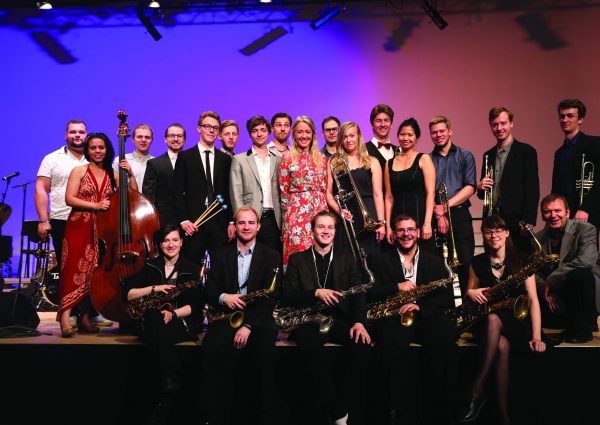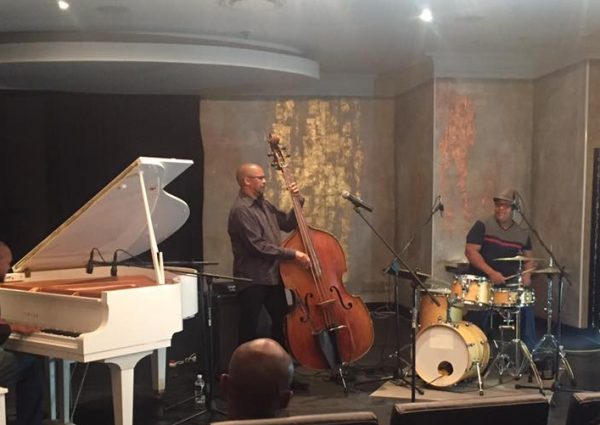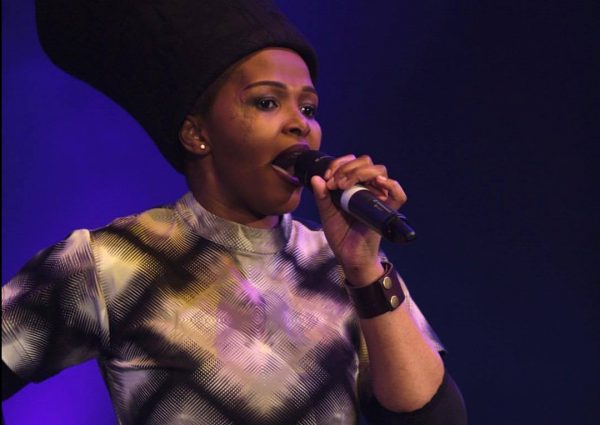Macufe is slowly but surely losing its ‘cultural festival’ impetus, observes Mpho Matsitle
“Ao ngwanake!” the teller cooed as I plonked my disappointed head on the counter. It was a Tuesday. All tragedies begin on a Tuesday; I was born on a Tuesday.
I was early enough, or so I thought, to cop tickets to the closing night of Jerry Mofokeng’s MaBrr: The Musical, some three nights away on a Friday.
“What about tomorrow?” I pulled something from the great well of hope that is blackness. She shook her head, her eyes registering my pain.
She knew me, the teller. Many a times I have come to the booking centre of the Performing Arts Centre of the Free State (Pacofs) to purchase tickets and enquire if there were any shows worth my eyes – you know, ‘cause their marketing isn’t up to scratch.
And on many occasions they – she and her colleagues – have blessed me with complimentary tickets for especially the white shows: our silent war for reparations. I stopped short of asking we actively partake in this war by taking just one ticket, for any night, from the many that lay on her table in envelopes marked for a certain Mrs van der Walt, or some Mr du Plessis.
Either through mind reading or motherly love, she apologised and pointed that sadly she couldn’t offer me any comps. My tragedy was set in stone.
As one who has defrauded himself and the world into believing that I am a cultural baron in a city of philistines, missing out on such a show of international importance is a traumatic experience only second to discovering that ‘wa jellwa’—the biggest cultural export of Mangaung at the moment.
In my whole life as a denizen of Mangaung and its number one art patron (self-appointed, of course), I had never heard of a play being sold out.
So what was different about MaBrr? The musical was about the larger than life legend, Brenda Fassie, played by the talented and famous Lesego Motsepe. But, no disrespect to the show, that wasn’t the reason it was sold out.
Many such shows – I’m thinking now of Sekhabi and Grootboom’s Rhetorical, with the equally talented and famous Presley Chweneyagae and Fezile Mpela – have visited Pacofs and did not achieve such a feat.
The difference here was that it was Macufe time, a period in which “sleepy Bloemfontein” as one local publication described the city becomes cultured on cue.
Everybody feels they have to be somewhere: see something, hear something. It is a festive time, and a boom for the cultural industry. Theatres are packed, craft makers get to eat, alcohol and ice run out, club owners are brave enough to charge up to R300 at the door and the music envelops the whole city in a cloud of heavy bassline.
Macufe (Mangaung Cultural Festival) has become a major item on the nation’s cultural calendar. A brainchild of local entrepreneurs, it is currently in its 20th year and growing strong. And with (financial) success comes some pitfalls. One that pains me the most is that the tragedy that befell me on that Tuesday so many years back will not have an encore.
Macufe is slowly but surely losing its ‘cultural festival’ impetus. Much like the Durban July in the popular imagination is no longer about horse-racing, Macufe is becoming at best a week-long popular music festival, and at worst an uninhibited binging affair.
Because the music concerts – Hip Hop on Friday, Gospel on Sunday, Jazz on Thursday, Divas and Urban Youth on Friday, and Main Festival on Saturday – are the big money spinners, the rest of the festival has been reduced to the fringes and in some cases rendered invisible.
For instance, there hasn’t been a play of the stature of MaBrr that would make one curse his ancestors if they missed it. In fact, last year drama was relegated to the obscure music school Musicon and played at the oddest of times.
All the plays were amateur, which is a good thing to include in a festival, but cannot be the only thing. This year however, there was a slight improvement in the drama department, boosted by three brilliant local productions by some of Mangaung’s top playwrights.
That notwithstanding, it seems the trend of reducing anything that does not #FillUpTheDome to the fringes continues unabated.
The drama productions enjoyed decent crowds, but I am ready to wager that this was more to do with their popularity with the city’s art patrons than with Macufe fever.
In fact apart from the banners in some parts of the city, there wasn’t any marketing of these productions. The official programme was even misleading as it indicated the drama festival starts on Tuesday, when in fact it started on Monday.
On that same programme that lists the line-up for each show, the names of the productions that constitute “Macufe Theatre” were not listed. The website too would not tell you much. On the official social media accounts, there was no mention whatsoever of any of these shows. Never mind an events page as was done for the other events.
There was a three-day literature festival that was also given a wide berth. No mention of it on the website, the programme or social media accounts. It is thus no surprise that it was attended in the main by its own participants.
Macufe Reggae organisers went as far as creating their own page to garner support for their orphaned show, the venue and time of which having characteristics of a chameleon. The organisers of the inaugural Macufe Carnival also had to go at it alone. We cannot say for sure whether or not there was a fine art or film festival this year. It is disturbing.
Ideally Macufe should be where the godliness of Cape Town Jazz Festival, the snobbery of the National Arts Festival and the debauchery of Durban July meet.
On paper, it is a cultural festival with no rival in South Africa. It ticks all the boxes: there is boxing, poetry, soccer, drama, literature, dance, lectures, art exhibitions, beauty pageant, comedy, film, cultural workshops, and music of all genres.
But it matters what is amplified via digital media, posters and line-up. Gone are the days when Lesego Rampolokeng headlined the poetry show or Lesego Motsepe roared her way into Brenda Fassie heaven.
These cultural events that have been expelled to the fringes have been left to their organisers’ idiosyncrasies, often without any discernible direction or link to the zeitgeist of the festival as a whole. For instance, there wasn’t much, if any, linkage to the brilliant theme of this 20th anniversary: “Re Ya Tshola.”
This could have been the domain of lectures, literature festival round-table topics, poetry slam challenge, and documentaries at the film festival. But nothing was cooking.
Macufe is now a little more than a popular music festival. What it needs is maybe a skilled curator who will have their sights beyond the bottom-line and trends: someone who will give even off-the-shelf philistines a chance to be cultured on cue.
A cultural festival should live up to its name and not just what sells. We have to see the same amount of energy and resources put into drama, poetry, visual art, etc. instead of the current arrangement where they seem like by-the-way tick box exercises to sate the sponsors.
Macufe Poetry ought to give Durban’s Poetry Africa and Johannesburg’s Word n Sound Fest a run for their money.
Surely a Wangechi Mutu can share a flight with a Chante Moore, or have Faith47 paint the Waaihooek Towers throughout the festival period. This way, with these hundreds of flowers blooming, Macufe will truly be a cultural festival, and “we the people” can truly have, as Prince Kaybee commands: Yonk’into.
Mpho Matsitle is the Publisher of ART STATE. He is @MphoMatsitle on Twitter
FEATURED IMAGE: Macufe Carnival marches through the streets of Heidedaal. Credit: @infinit3_za







Sipho Mnyakeni
so true
on Point
Macufe the Return: From Top-flight Festival to Landing on a Busy Runway - Art State
[…] into a music bash. In our 2017 special Macufe coverage, publisher and art critic, Mpho Matsitle, wrote that Macufe was “slowly but surely losing its ‘cultural festival’ impetus…becoming at best […]